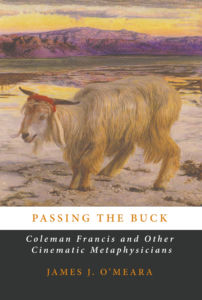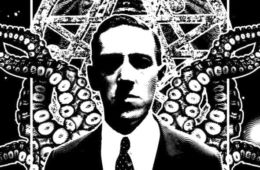The New Mann: Reflections on Reading, Translating, and Annotating Germany’s Greatest “Black” [sic] Author, Part II
Part 2 of 2 (Part 1 here)
The Stories
But the stories! What of the stories themselves? Rather than going over the inevitable Death in Venice, the minor “Louisey,”[1] or the pseudo-story (“A Day in the Life of Hanno Buddenbrook,” which is actually an arrangement of self-contained chapters from Buddenbrooks that Searls has perhaps cobbled together in hopes of enticing the sulky reader into tackling the Big Book), I want to take a look at the remaining two stories, one of which contains some surprisingly relevant bits about The Way We Live Now, and the other gives us a kind of con-man’s guide to Positive Thinking.
A, “Disorder and Early Sorrow” (now retitled, for somewhat trifling reasons, “Chaotic World and Childhood Sorrow”)
One of Mann’s most admired stories (including by Hemingway, no less), it’s also a favorite of Searls,[2] and its lapse from copyright inspired him to offer his own version for a new generation, as one says. Indeed, stylistic matters aside, this tale of cultural, economic, and domestic chaos during the Weimer Republic[3] offers some remarkably contemporary observations.
For example, the elder children (known to the family as The Bigs) seem to have pioneered a form of trolling:
They love sitting on a bus indirectly acting the part of different people than they really are, speaking in a country dialect they otherwise never use, openly having long, fake, perfectly normal conversations about politics and food prices and people who don’t exist, while the whole bus listens sympathetically and yet with a dark inkling that something’s wrong.
Eventually, this elicits the desired response from some uptight Herr Professor, who “protests against young people going into such detail on these themata (he uses the Greek plural, themata)”:
Such are the amusements of the Bigs. The telephone plays a prominent part in them: The Bigs call anyone and everyone — opera singers, members of government, dignitaries of the Church — and pretend to be shop assistants, or Prince and Princess Mannsteufel, and have great difficulty grasping that they’ve reached the wrong number.
All of which requires “a fine-tuned sense for the confusingly semi-plausible.”
Among the younger children, the Littles, we find the feminization of culture, especially in education, where rambunctious behavior is denigrated:
She does everything better than him, and he honestly looks up to her for it and follows her lead in all things, except in his fits of rebellion and belligerent temper. She often teaches him things in professorial fashion, showing him the birds in the picture book and naming them for him. . . . He has to repeat after her.
We even get intimations of Big Sister’s COVID tyranny:
She gives him medical instruction too. . . . If he doesn’t pay attention and can’t repeat after her, she makes him go stand in the corner.
Otherwise, the two present a most un-PC sexual dimorphism: “yet they are also noticeably different, typifying in fact the male and the female. They are most emphatically a little Adam and a little Eve.” And Mann presents the Professor’s love of his littlest daughter as a healthy, natural development of marriage and family, rather than some quasi-incestual patriarchal oppression:
Deep down he understands that the feeling didn’t come out of nowhere and inextricably bind itself up with his life for no reason, but rather that he had unconsciously prepared it or, more accurately, been ready for it: something inside him was poised to give rise to this feeling at the right moment, and, moreover, this something was — deeply strange though it is to say it — his nature as a Professor of History.
However, sexual confusion is growing: “Here and there two girls are dancing together, sometimes even two boys — it’s all the same to them.” There are even hints of the degenerate cabaret transsexualism, which the Herr Professor attempts to rationalize in a display of world-wise tolerance:
Herzl, the actor, is short and slim, but his black beard grows thick and mighty, as you can tell from the excess of powder he’s used to mask it. . . . [He] has clearly put on not just powder but rouge — the matte crimson on his cheekbones is clearly of cosmetic origin. Strange, the professor thinks. But here we no doubt see the particular abnormal psychological structure of the artist, which makes this contradiction possible; which perhaps, one might even say, consists of this contradiction.[4] How interesting. And no reason to be any less polite. This is a legitimate form of the soul, an archetype . . . “Have some lemon, Herr Hofschauspieler!”
Hofschauspielers — court performers — don’t exist anymore,[5] but Herzl is delighted to be called one, even though he is a revolutionary artist. Another contradiction that’s part of his psychological profile. The professor presupposes its existence, rightly, and flatters him, partly to atone for the offense he’d secretly taken at the light coat of rouge on Herzl’s cheeks.
“My deepest, most heartfelt thanks, Herr Professor sir!” Herzl blurts out. . . . It’s as though he too has a bad conscience about the rouge, which he was inwardly compelled to apply, yes, but which he himself disapproves of now that he sees it from the professor’s perspective, and which he thus tries to atone for by means of great humility toward the unrouged world.
Not only are the Bigs proto-trolls, but we also even meet an alt-folk archetype; alongside Herzl the Professor encounters “another young man named Möller — ”
A nature-lover type[6] who clearly neither owns nor has any desire to own proper middle-class evening wear (the fact is, there is no such uniform anymore). He has no interest in playing the “gentleman” (the fact is, there are none of those anymore either). His outfit is a belted blouse and shorts, and he sports a thick flop of hair, a long neck, and horn-rimmed glasses. He works in a bank, the professor learns, but is otherwise something of a folklore aficionado who collects and sings folk songs from all languages and corners of the world.
Möller is welcomed to give a performance, which is well-received, and “in the way of all fathers,” the Professor silently broods on his own, proto-Zoomer son:
Whereas here we have my poor Bert, who doesn’t know anything and can’t do anything and thinks only about playing the clown, even though he doesn’t have the talent even for that!
In this, as in clothing and hairstyle, he takes after not his father, but the butler, Xaver, his constant companion and role model (he has already tried to run away to become a waiter in Cairo — sort of like having “barista” as your goal today):
[Xaver] is truly an utterly good-for-nothing windbag — with positive qualities, as his moderate master is always prepared to admit, but an impossible windbag nevertheless. . . . He is a child of this time out of joint — its scapegrace fruit, exemplary of his generation: revolutionary servant, likable Bolshevist. . . . But since the idea of duty is utterly unknown to him, he can no more be convinced to carry out boring everyday tasks than certain dogs can be made to jump over a stick. That would run counter to his nature. . . . He also gets along well with children; it is one of his winning qualities.
And, of course, this child of time out of joint “loves the movies with all his soul”; he has “vague hopes” that someday “his tossable hair and physical agility and audacity” will somehow let him find his fortune therein.
Some, however, have more drive, and have risen to the level of day-traders:
One pale, lanky stripling with beads in his shirt, the son of a dentist, is nothing but a stock market speculator, and according to everything the professor has heard, he lives in this capacity like Aladdin with his magic lamp.
Disorder also manifests itself in casual or inappropriate manner of dress and comportment:
This is the informal way everyone talks to one another — with first names, in a tone totally alien to the older generation, with barely a trace of modesty, gallantry, and formality.
This generation has invented an outfit to suit the times, the product of poverty and Boy Scout taste. . . .
Xaver [the butler], meanwhile, has changed from his striped livery into his civilian coat, which immediately makes him look a little like a pimp. . . .
Disorder outside the family manifests itself as efficient, industrial Germany slowly sinks into third world status, as we are today:
The basin broke a year ago. It’s supposed to tip but one of its hinges broke, and it can’t be repaired, because there’s no one to come repair it, nor replaced, because there’s no shop that can supply a new one.
You tell them the size [shoe] you want and it’s a different size every time, numbers don’t mean anything anymore, not to mention the material today — look, that’s not leather, it’s cast iron!
Two formerly middle-class sisters who now carry out the duties of cook and chambermaid as “au pairs,” as people say, namely in exchange for food and lodging. . . .

You can buy James J. O’Meara’s Passing the Buck: Coleman Francis & Other Cinematic Metaphysicians here.
Professor Boomer Dad even has his own “private stash in the little built-in cupboard,” a cheaper brand of cigar that he casually leaves on a table as a gesture of hospitality.
The private sorrow that mirrors this public chaos is little Lorchen, who has fallen in love with one of the Big Ones’ guests, Max Hergestell, whose rather bourgeois family has been a subject of mockery for her older sister. The Professor must comfort her as best he can, ultimately relieved when Max returns: “clearly he is fully conscious of his role as the bringer of joy, Prince Charming, Lohengrin the Swan Knight: the one who says, Now then, here I am, all your sorrows are behind you!” — while meditating on the inevitable transfer of her love from him to a stranger.
It’s all perfectly natural, though Mann, being Mann, must add his “ironic” medical detachment, as the eccentric nurse intones: “’The situation is,’ she says, lips pursed, in a voice of severity and wisdom, ‘that the female drives are coming out very strong in this child.’”[7]
Even the Professor’s attachment and surrender of his daughter is yet another heresy in the modern world; it sounds almost obscene. But the modern world would have an answer: puberty blockers, stat!
B. “The Confessions of Felix Krull, Confidence Man” (retitled “Confessions of a Con Artist, by Felix Krull — Part One: My Childhood” because, why not?)
The most pleasant surprise, however, is the last story, the autobiography of Felix Krull, con man; not so much for the translation, but because rereading reveals that Mann not only connects the con man to the equally American tradition of Positive Thinking, but also uses the biographical method to expound something very close to Neville Goddard’s “simple method for changing the future.”[8]
Constant Readers also know that I loves me some con man, the ultimate spiritual archetype of the American;[9] and ever since Melville’s The Confidence Man, comparisons have been drawn — ironic or not — between what Poe called “diddling” and the tradition, going back to Emerson, of success through “confidence in yourself.”[10] Yet, here is Mr. “I am German Culture” himself giving us a con man whose career begins in his childhood discovery of something like Neville’s method.[11]
“An imaginative child,” Krull early on evinced a love, a veritable lust, for sleep and dreams:
Now you might think this unusual desire for sleep contradicts the powerful striving for life and love that animates my spirit, no contradiction here, rather a hidden affinity and agreement.
For it is in dreams — or rather, the hypnagogic state just preceding sleep and shortly after awakening — that one can rehearse a previously formulated desire of the will, thereby bringing it about in one’s waking life: “the realization of [my] secret dreams.”
Oh, how many times I had imagined such a scene and rehearsed it in my mind before daring to actually perform it!
I felt like I was in a blissful dream the first time I put it into practice and met with complete success.
I had improved on nature, made a dream come true — and anyone who has ever boldly applied himself to create a compelling, potent reality out of nothing, from mere observation and an inner conception of things, in short from the imagination, will have felt the wonderful, dreamlike sense of satisfaction with which I rested from my efforts.
You will be able to share my fierce joy, at least in part, only if you imagine waking up from a thrilling dream that gave you many things and then finding those things actually, tangibly there on your blanket in the bright light of morning, as though the dream had left them there.[12]
Krull teaches himself, or was born with precocious knowledge of, all the elements needed to “cause change in accordance with the Will,” as Crowley would say.[13] First, formulating a dramatic scene implying fulfillment of the wish, and running it over again and again:
I liked to pretend I was the Kaiser, in fact would doggedly insist on it for hours at a time.
I would get extremely upset if anyone didn’t respect my little fantasy.
[His nurse] would place her flat hand against her temple in an awkward salute; then everyone showed me proper reverence.
I would stick to this fantasy all day, or even for several days, because the truly priceless advantage of a game like this is that you never need to interrupt it, not even during the utterly dreary and burdensome hours of school.
My voice, even before I exchanged it for another, had something flattering to the ear about it, and so I loved to hear it even when I was alone, accompanied by happy, extravagant gestures, but of course it was meaningless jibber-jabber that only pretended to be real conversations with my invisible adjutant.
Oh, how many times I had imagined such a scene and rehearsed it in my mind before daring to actually perform it!

You can buy James O’Meara’s book The Eldritch Evola here.
Then the importance of emotion, infusing the scene with warmth — what Evola called “sweet fire,”[14] for as Neville insisted, “feeling is the secret”:
[As he imitates the Kaiser, his eyes become] red and filled with tears, not only as a result for my stretched face but also from the depth of my emotions.
[His godfather would laugh] himself practically to death when he saw me so overcome with emotion that the tears rolled down over my distended upper lip.
The fruit of these inner explorations was always a deep emotion, a desire, so strong that even today, despite my exhaustion, the mere memory of it makes my heart pound faster.
Faith and trust in the world offers great advantages, for treating people and things as worthwhile not only flatters them, thereby ensuring one’s advancement, but also infuses one’s every thought and action with an earnestness, passion, and responsibility that make them admirable and meaningful, and can lead to the greatest success.
Perhaps a bit paradoxically, one must also relax:
[Y]es, really I just needed to relax and let myself go for a bit . . . Were that not my essential nature, then voluntarily relaxing the body and mind would never, neither then nor later, be enough to make me look convincingly sick and inspire the people around me (when there were any) to gentle, humane treatment.
I had to be totally masterful at very moment so as not to crumble into ridiculousness, a certain state of simultaneous ecstasy, tension, and relaxation that was necessary for something unreal to become real to myself and to others.
Eventually, he comes to a fateful realization: He can use this method to con others: first, of course, to convince his mother he’s too sick to go to school:[15]
Medical science insists that fever can only result from a toxin in the blood due to a pathogen, it cannot have any cause but a physical one. That is simply ridiculous.
[T]he excitement of the moment, the thrilling accomplishment of an act of will I had taken it upon myself to carry out, the intensity of my commitment to the role of a sick person. . . . I was fully capable of using this sudden vivid sensation to give my heartbeat a sluggish, failing rhythm.
As it’s said, you can’t con an honest person: The bait in the trap is the suggestion of something for nothing, or perhaps just for a little bit of dishonesty.[16] Less cynically, Krull realizes — after meeting an actor backstage who, despite his loathsome reality, has through many tricks of the trade embodied an audience’s longed-for ideal[17] — that he can use his method to transform himself into whatever can satisfy his mark:
Put aside your disgust and instead acknowledge that, secretly conscious though he was of those loathsome pimples, he was still able to move with such beguiling self-satisfaction in front of a crowd — admittedly with the help of light and greasepaint, music and distance, yes, still he gave the crowd a vision of their heart’s ideal and thereby lifted them up, brought them to life, immeasurably.
The only deception with any chance to work on people is the one that doesn’t deserve to be called a deception at all — it is simply taking a truth that is real and alive, if not entirely occurring in the realm of actuality, and furnishing it with the material attributes it needs to be recognized and duly appreciated by the world.
Now there’s relevance for you in a book of tales from the first half of the last century: first a surprisingly prescient look at how we live today, and then a practical method to enact the needed changes.
* * *
Like all journals of dissident ideas, Counter-Currents depends on the support of readers like you. Help us compete with the censors of the Left and the violent accelerationists of the Right with a donation today. (The easiest way to help is with an e-check donation. All you need is your checkbook.)
For other ways to donate, click here.
Notes
[1] To be fair, so minor it was unknown to me, and thus a new reading experience, so there’s that. The story — fat, clueless burgher marries attractive woman, who contrives with her musician lover to humiliate him by forcing him to dress up as a tart and do a little song and dance at a party they throw for that purpose — seems pretty close to Mann’s brother Heinrich’s 1905 novel Professor Unrat, or at least its film adaptation, The Blue Angel. Of course, this would get him cancelled today; at the very least, he or the partygoers would have to validate the protagonist’s “heroic choice.”
[2] And me too! This was the first Mann story I encountered, many years ago; and, in another indication of its status, this was in one of those paperback anthologies called something like Best German Stories.
[3] “[Mother] too needs to bike into town with her shopping bag before the young people come back, to transform a sum of money in hand into groceries, so as not to risk devaluation.”
[4] A Mann specialty.
[5] One of Searls’ useful intra-text glosses. Of course, with the overthrow of the Emperor by the “November Criminals” and the proclamation of the Weimar Republic, no court theater remains.
[6] This translates Wandervogel, which Searls unpacks in another of his explanatory footnotes.
[7] Mann was famous for cribbing “objective” scientific or medical accounts to provide ironic detachment from what would otherwise perhaps be bathetic or cliché, with perhaps the best example being the end of the Hanno story, where his death is conveyed by a medical book’s listing of symptoms.
[8] The Felix Krull story was completed before his American stay, but the novelized continuation antedates it. Moreover, since Neville had begun his public lectures before Mann arrived in Los Angeles, one has to wonder if he may have attended or at least heard about their contents. Needless to say, this would have given Adorno, the sworn enemy of “mysticism,” yet another reason to despise Mann.
[9] See “Don Draper’s Last Diddle: The Finale of Mad Men,” and many other pieces here on Counter-Currents.
[10] See my review of Stephen Paul Foster’s Toward the Bad I Kept Turning: “A conman is the perfect guide to American history. First, it’s a very American genre, as limned in fiction by writers from Poe and Melville to Mad Men, as well as the whole ‘self-help’ genre from P. T. Barnum to Jordan Peterson; all work with the uniquely American virtue of confidence.”
[11] “First, clarify a sincere and deeply felt desire. Second, enter a state of relaxed immobility, bordering on sleep. Third, enact a mental scene that contains the assumption and feeling of your wish fulfilled. Run the little drama over and over in your mind until you experience a sense of fulfillment. Then resume your life. Evidence of your achievement will unfold at the right moment in your outer experience.” Mitch Horowitz, The Miracle Club: How Thoughts Become Reality (Rochester, Vt.: Inner Traditions, 2018), reviewed here.
[12] Interestingly, in Lovecraft’s late tale “Dreams in the Witch House,” the protagonist awakes one morning from a trans-dimensional nightmare to find an ornament which he had broken off from a balustrade in his dream lying in his bed.
[13] Crowley defines “Magick” as “the Science and Art of causing Change to occur in conformity with the Will” in Magick: Liber ABA, p. 126. “The secret pleasures that without any visible effort, simply by an act of will, I could derive from that ability.” “In fact every concrete deed I have managed to perform in my life should really be regarded as the product of sheer willpower and, yes, respected as a moral accomplishment of the highest order.”
[14] “Another technical detail is in order. In order for any image to act in the way I am talking about, it must be loved. It must be assumed in a great, inner calm and then warmed up, almost nourished, with sweetness, without bringing the will or any effort into play, and much less without expectations. The Hermeticists called this agent ‘sweet fire,’ ‘fire that does not burn,’ and even ‘fire of the lamp’ since it really has an enlightening effect on the images.” Introduction to Magic: Rituals and Practical Techniques for the Magus (Rochester, Vt.: Inner Traditions, 2001), p. 57, “Commentary on the Opus Magicum.” “The fire of the lamp” recalls Neville’s “[y]ou must be like the moth in search of his idol, the flame.” Again, Dr. Lechter comes to mind: An investigator muses over one of Buffalo Bill’s tell-tale moths: “Somebody grew this guy. Fed him honey and nightshade, kept him warm. Somebody loved him.” Silence of the Lambs (Jonathan Demme, 1990). For more on Neville, Crowley, and Evola, see my collection Mysticism after Modernism: Crowley, Evola, Neville, Watts, Colin Wilson, & Other Populist Gurus (Colac, Victoria, Australia: Manticore Press, 2020), available here.
[15] An excellent use of the hypnagogic moment, when “the latest possible moment for me to get out of bed had passed in pensive brooding.”
[16] “Grown men and women, though, usually so worldly-wise and well informed, who so willingly, eagerly let themselves be infatuated and beguiled — how could they not know they were being tricked?”
[17] “The expressions on those faces were fatuous and blissful. A universal smile of idiotic, oblivious abandon played across all the lips at once, and if it was sweeter and more excited on those of the girls in blouses, and indicated a sleepier, lazier worship . . . exalted clerks were trying to imitate the hero of the evening in their walk, their voice, the way they . . . held their walking sticks.” Backstage Krull meets the star: “This makeup-smeared, leprous creature is the thief of hearts. . . . This repulsive earthworm is the true shape of the blessed butterfly in whom, a moment ago, a thousand deceived eyes thought they saw the realization of their secret dreams.”




